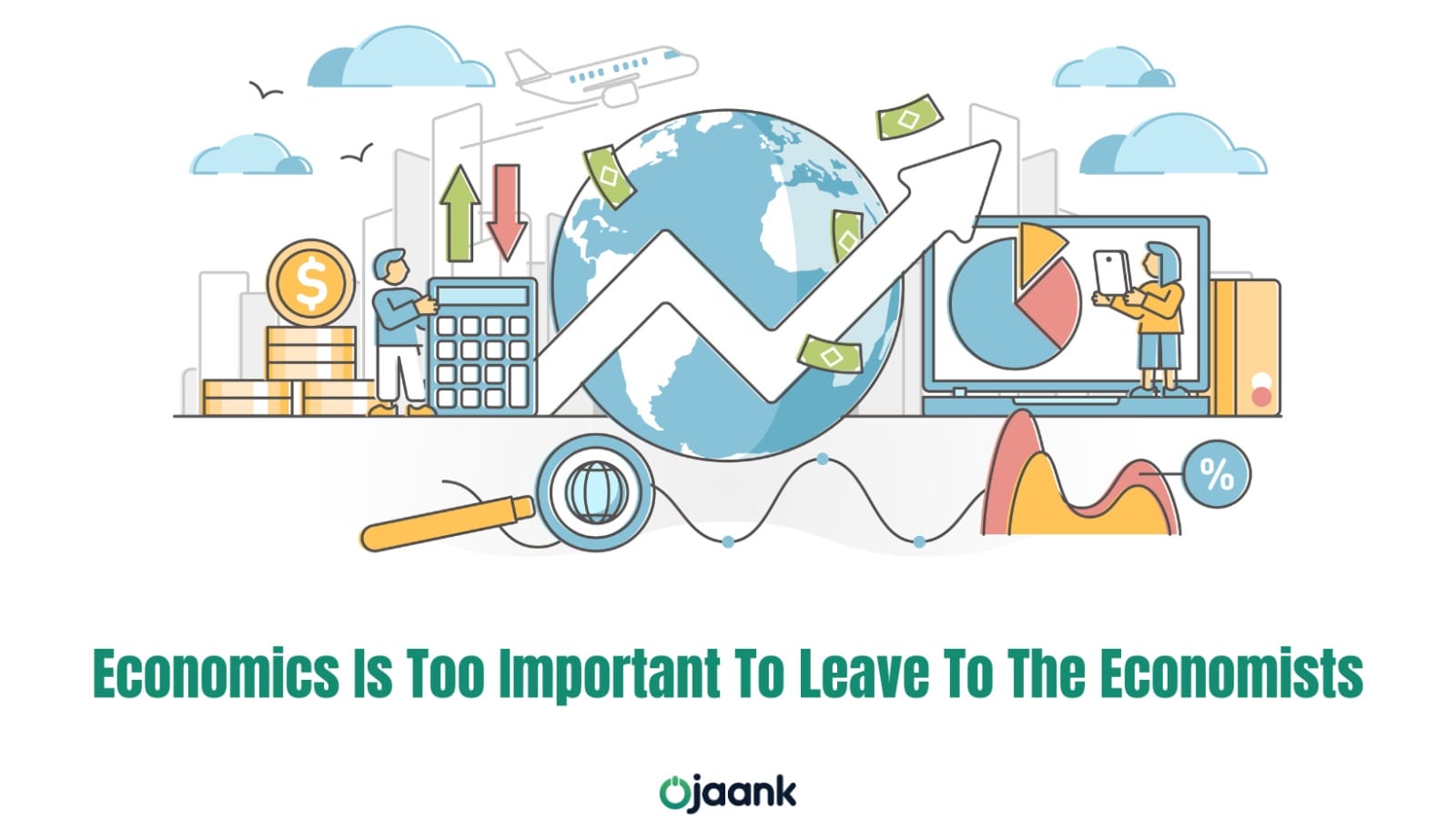Economics Is Too Important To Leave To The Economists

Economics, often referred to as the "dismal science," has an immense impact on society, influencing policies, decisions, and the overall well-being of individuals. While economists certainly possess the technical expertise required to analyze economic phenomena, it is essential to recognize that economics is too important to be solely relegated to the realm of specialists. A comprehensive understanding of economics is vital for everyone, from policymakers to the general public. This essay delves into the reasons why economics should not be left solely to economists, emphasizing the need for widespread economic literacy and engagement.
In an increasingly interconnected world, economic decisions made by governments, institutions, and individuals hold far-reaching consequences. Without a basic understanding of economic principles, citizens may struggle to grasp the implications of policies and proposals that impact their lives. Economic literacy empowers individuals to critically evaluate economic arguments, enabling them to make informed decisions and contribute meaningfully to discussions on economic matters. When economics is solely the domain of economists, important decisions can become detached from the concerns and interests of the general public, leading to a democratic deficit.
Economics is not confined to a singular field of study; rather, it intersects with various disciplines such as sociology, psychology, politics, and environmental science. Leaving economics exclusively to economists risks overlooking these multidisciplinary connections, which are crucial for addressing complex issues like inequality, environmental sustainability, and social justice. For instance, an economist might propose a policy solution to stimulate economic growth, but it takes input from sociologists and environmentalists to ensure that this growth is equitable and environmentally responsible.
Economic decisions are not purely technical; they are deeply intertwined with ethical considerations and societal values. Economists often make value judgments when designing economic models or policy recommendations. These value judgments may not always align with the diverse perspectives and moral stances held by society. It is essential to involve a broader range of voices in economic discussions to ensure that policies and decisions reflect a more comprehensive understanding of ethical dimensions. Leaving economics solely in the hands of economists could result in policies that neglect important moral and social concerns.
Economists, like any other profession, can fall victim to groupthink and bias. If economics remains exclusively within the purview of economists, there is a risk that certain perspectives or ideologies dominate economic discourse. A more inclusive approach to economics, involving input from various disciplines and backgrounds, can help counteract these biases and promote a more holistic understanding of economic phenomena. Diverse perspectives can lead to innovative solutions and a richer understanding of complex economic challenges.
Economists often grapple with the challenge of applying theoretical models to real-world situations. This gap between theory and reality can sometimes lead to policies that sound good on paper but fail to produce desired outcomes in practice. By involving a broader range of stakeholders, including non-economists, in economic discussions, there is a better chance of identifying potential discrepancies between theoretical predictions and real-world results. This collaboration can lead to more effective and practical policy recommendations that are grounded in the complexities of the real world.
Economics is not a static field; it evolves as societies and economies change. To ensure that economic theories and policies remain relevant and adaptable, a culture of ongoing debate and engagement is essential. This culture can only thrive if a diverse range of individuals, beyond the realm of economists, actively participate in economic discussions. Different perspectives challenge conventional wisdom and encourage critical thinking, fostering an environment of continuous learning and improvement within the field of economics.
The democratization of economic knowledge is a key step toward reducing information disparities. When economic principles are accessible and understandable to the general public, individuals are better equipped to navigate their personal finances, understand the implications of policy changes, and actively participate in economic decision-making processes. Economic education and engagement at all levels of society can contribute to more equitable outcomes and prevent the concentration of economic power in the hands of a few experts.
In conclusion, economics is undeniably too important to be confined solely to the expertise of economists. The interdisciplinary nature of economics, its ethical dimensions, and its impact on society make it imperative for a broader range of individuals to engage with and understand economic principles. Economic literacy among the general public enhances informed citizenship, promotes ethical considerations, combats biases, bridges the gap between theory and reality, and fosters a culture of debate and engagement. By democratizing economic knowledge and involving diverse perspectives, we can ensure that economic decisions are more inclusive, relevant, and beneficial for society as a whole.